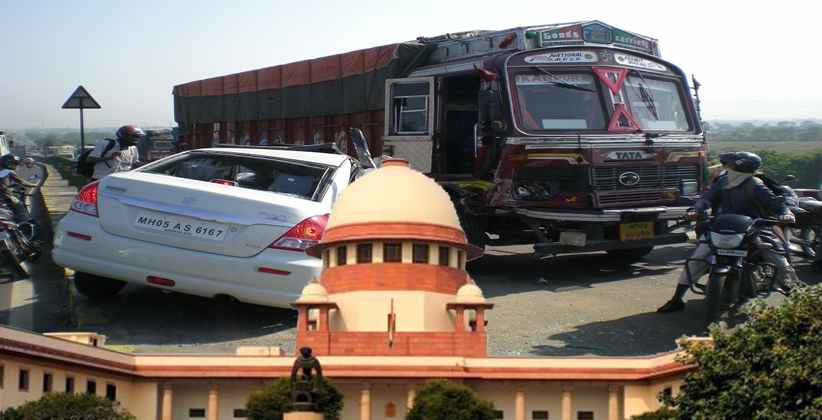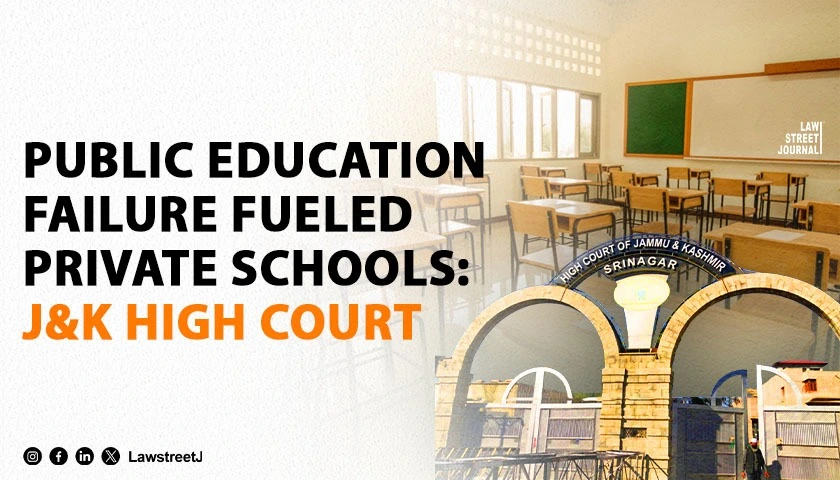On 27th July, The Supreme Court in the case of ErudhayaPriya vs. State Express Transport Corporation Ltd delivered judgment for enhancement of compensation to Rs. 41,69,831/- along with simple interest at the rate of 9% per annum.
The appeal was allowed by the Supreme Court bench comprising of Justice Sanjay Kishan Kaul, Justice Ajay Rastogi, and Justice Anirudh Bose.
Facts Of The Case
On 16th August 2011, the appellant Erudhaya Priya was traveling on a bus owned by respondent State Corporation from Chennai to Bangalore. At around 5:40 am the bus was moving on the Kolar Bangalore National Highway and suddenly it collapsed with a stationary lorry. Due to this collision, numerous passengers got injured including the appellant. The bus conductor died on the spot while the appellant was rushed to the hospital for further treatment.
The appellant was admitted for 8 months as the injuries were grievous including fractures in the arms and legs and disability of 31.1% of the whole body.
Appellant filed an FIR u/s 154 of CrPC, 1973 and also filed a claim petition before the Motor Accident Claim Tribunal (MACT), Madurai u/s 166 of the Motor Vehicle Act, 1988 r/w Rule 3(1) of the Tamil Nadu Motor Vehicle Accident Claims Tribunal Rules, 1989. Claiming a compensation of Rs. 1 crore for injuries sustained in the accident.
As both the parties led their evidence, the MACT on behalf of the documents and oral testimonies and other evidence including the charge sheet concluded that the bus driver was driving in a rash and negligent manner u/s 279, 304A, 337, 338 of IPC, 1860 which caused the accident, does hold the respondent State Corporation liable to pay compensation the appellant.
The MACT also suggested that after considering the permanent disability of 31.1% to the appellant the multiplier method would apply to calculate the loss of earning power. The multiplier method was applied to the monthly salary of the appellant as a software engineer of 17 as the appellant was 23 yr of age. The compensation was attributed under various heads of extra nourishment, medical expenses, physiotherapy and etc.
The total compensation amount payable by the respondent along with interest @7.5% per annum was of Rs. 35,24,288/-.
Appeal To The High Court
The respondent filed an appeal against the order of MACT. The High Court reduced the compensation to Rs. 25,00,000 /- on the ground that the multiplier method has been wrongly applied but confirmed the findings of the negligence of the bus driver.
Appeal To The Supreme Court
The appellant claimed before the Supreme Court that she is entitled to enhancement of compensation even above what was granted by the MACT. She quantified the amount at Rs. 41.69.831 /- and revised the interest rate at 12% per annum.
The court examined three aspects: -
- Application of multiplier of 17 instead of 18.
For this aspect, SC relied on the judgment of National Insurance Co. Ltd vs. Pranay and Others in which it was held in para 42 that in the age group of 18 to 25 years the multiplier has to be 18 long with factoring in the extent of disability.
- Loss of earning capacity of the appellant with a permanent disability of 31.1%.
The appellant claimed compensation on the settled principle set out in the case of Jagdish vs. Mohan and Others and Sandeep Khanuja vs. Atul Dande and Anr. The court examined the disability certificate which shows the admission on 8 occasions for various days over 1 year from August 2011 to January 2013.
The Court quantified the compensation on the basis of the judgment in National Insurance Co. Ltd. case para 59.3, considering the age of the appellant to be 50% of the actual salary in the present case.
- The interest rate claimed at 12% per annum.
The appellant watered down the interest to 9% in the view of the judgment in Jagdish vs. Mohan and Others. The court affirmed no dispute was raised by the respondent council in respect of it.
The Final Decision
Hence, the appeal of the appellant for the compensation of Rs. 41,69,831/- with simple interest @ 9% per annum from the date of the application till the date of the payment was allowed the SC.








